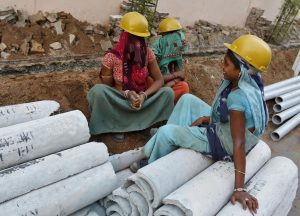Female Labour Force Participation in India:

India’s female labour force participation rate (FLFPR) has seen a significant rise in recent years.
- This seems promising for gender equality, a closer look reveals persistent challenges in employment quality, wages, and sectoral distribution for women.
- FLFPR includes women who are either employed or actively seeking work. The rise in this metric does not necessarily reflect improved economic inclusion if the work is unpaid or non-remunerative.
- According to the Periodic Labour Force Survey (PLFS) (2023-24), the FLFPR declined from 31.2% in 2011–12 to 23.3% in 2017–18, marking a period of withdrawal of women from the labour market.
- However, it rose sharply to 41.7% in 2023–24, suggesting renewed female engagement in economic activity.
- The share of rural women in agriculture rose from 71.1% in 2018–19 to 76.9% in 2023–24, while their presence in the industrial and service sectors declined.
- Between 2017–18 and 2023–24, women reporting “domestic duties” declined from 57.8% to 35.7%, but “helpers in household enterprises” rose from 9.1% to 19.6%, and “own account workers and employers” from 4.5% to 14.6%.




